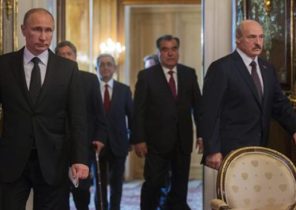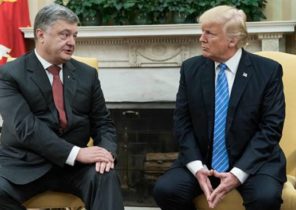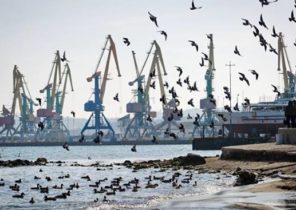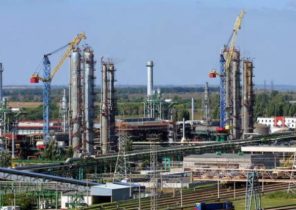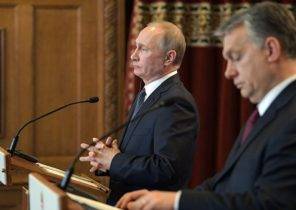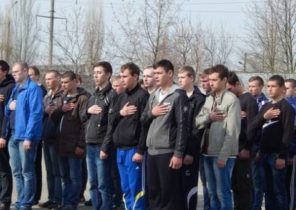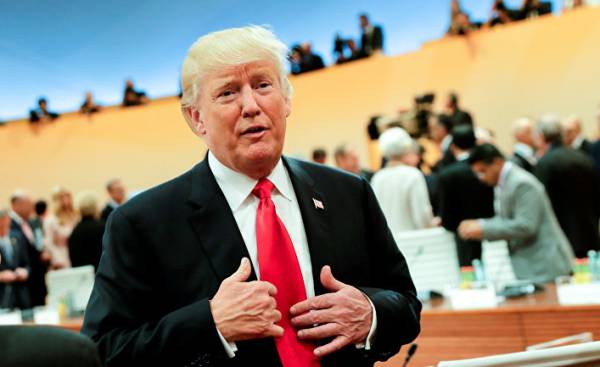
While Russia is preparing to “decades” of U.S. sanctions, cold in geopolitics threatens to become a glacial period for the modernization of the economy after the fall in oil prices.
Reluctantly turning penalties in the law, the President of the United States Donald trump has ensured that the future of Russia can be the same as her past as petrolesporta. According to Vladimir Miklashevsky, a senior economist at Danske Bank A/S, the law also marked the transition to the “new normality” now more alarming because it cannot be changed in the near future.
Desperate to escape from the investment of stupor after the longest recession of this century, the economy of the world’s largest energy exporter cannot afford to remain insulated from foreign capital and technology. In the framework of the global competitiveness report of the world economic forum, Russia was marked 111th out of 138 countries in the field of foreign direct investment and technology transfer.
“Although, at first glance, the Western sanctions have caused significant damage to the Russian economy”, it becomes clear that she became more isolated and now even farther behind technologically,” says Liza Ermolenko, an economist at Barclays Capital in London. “She remains heavily dependent on exports of oil and gas, and this is unlikely to change in the near future. Moreover, no country in modern history has been able to recover economically and technologically and to catch up with other countries, isolating themselves.”
Long-standing sanctions
The sanctions act gives lawmakers the right to block the President’s attempts to undo them, and strengthens punitive measures imposed over Russia’s invasion of Ukraine and its interference in last year’s elections in the United States. Thus, the measures received similar status to those which were adopted under the amendment of Jackson-Vanik, the cold war era in 1974, which imposed trade restrictions on the Soviet Union for blocking the emigration of Jews. She acted for four decades, even after the collapse of the Soviet Union.
Russian officials earlier said that the annual price of sanctions was 25 billion euros (30 billion. USA) in 2014 and 2015. According to IMF estimates, long-term restrictions may result in total loss of up to 9 percent of gross domestic product in the medium term.
“Now, when the law is signed, it is clear that the situation with sanctions will last a long time,” said Natalia Orlova, chief economist at Alfa Bank in Moscow. “Taste of the sanctions will accompany all business activities with Russia.”
At the moment, the market reacted calmly to such a development. After shocks in the last two months, this week the Russian currency, bonds and stocks showed signs of recovery when oil increased in price. The ruble showed some of the best performers among emerging markets on Thursday.
However, “the next six months will be full of uncertainty and turmoil for Russian assets,” especially as long as the US will clarify its position as to whether they choose as their goal also public debt, said miklashevskii.
“Geopolitical risks”
Although the Central Bank cited “heightened geopolitical risks” when he suspended the easing of monetary policy last week, according to his forecast, the sanctions will continue in the coming years. S & P Global Ratings also said that it is unclear “whether barriers to harm what we currently consider as moderate medium-term growth prospects for Russia.”
Although the government aims to increase GDP by 3.1% in 2020, the Bank of Russia said that the potential growth of the economy will likely grow by 2%. According to analysts surveyed by Bloomberg, the economy will grow 1.3 percent in 2017 after two years of contraction.
Russia has become more resilient to external shocks in the three years since the introduction of the sanctions, which allowed it to freely trade currencies, track spending and to try to promote “import substitution”.
However, privately, some officials admit that the aggravation of confrontation could cause investor concern. According to Minister of industry Denis Manturov, although Russia used to turbulence, but the business is most in need of “confidence in the future”.
“How can you talk about any long-term prospects, when all is unstable?”, he said.
